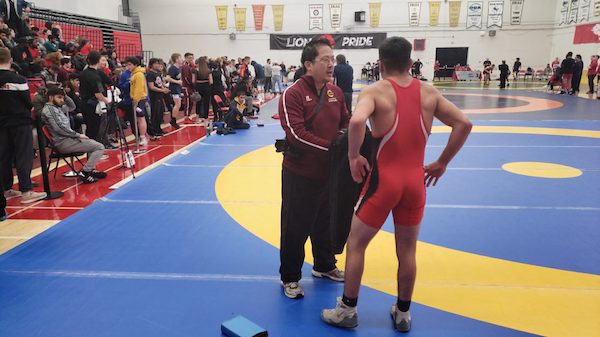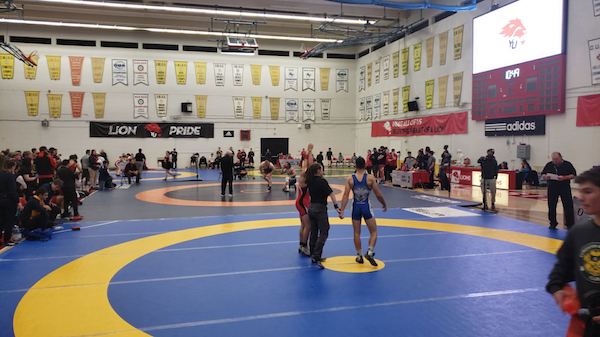Monday November 25th 2019
So last weekend, I got to coach at the York Invitational. While it just might be another tournament on the university circuit, for me it was a change of pace. Normally my weekends are filled with driving our younger athletes as well as members of my high school team to various tournaments either in Ontario, the Maritimes or the United States. Coaching high school has its own challenges as the athletes competing are “less developed” for lack of a better term. They lack certain skills, both in the physical and the mental domain and therefore require more handholding. In turn, the venues as well as the officiating may not be the best as you find yourself literally in the trenches, fighting for every point. This won’t be a normal thing for me as Concordia already has three coaches and I’m there purely in a support role. Next tournament that rolls around, I’ll be back with our younger athletes and that’s fine since most of my strength lies in development. However, I just want to point out that while I’m working more with our younger athletes, I can transition just as easily to the seniors since I’ve had no problems coaching in senior international events throughout the years.

Coaching at York was fun
Coaching university tournaments also presents a very mixed bag in the competitiveness as you can get athletes of pretty much all types. On the one hand, even amongst the varsity athletes, there can be a huge gap in their skill levels. On a varsity team, you might get the casual high school wrestler who wrestled a bit but never took it seriously and now wants to be a varsity athlete. These athletes were not recruited and chose the university more for the program rather than the wrestling team and come in under the radar. Most university teams need those bodies on the mat and won’t hesitate to take this wrestler on board. This is not to say that they will wrestle for the team at U-Sport Nationals, but they do increase the team’s membership and visibility and show the university that they program is viable. While some university programs have huge depth and can marshal many athletes at all the weight categories, gone are the days where nearly every university would have try-outs and making the team was hard. These athletes will represent the lower skill set but will wrestle all the tournaments during the season. You’ll then have the athletes who chose their particular university or were recruited for the team, thereby representing a significant jump in skill level. Most of these wrestlers came from well-established clubs and high schools and are usually at the top of the heap when it comes the level of competitiveness.
You then get the club wrestlers who aren’t affiliated with any particular university. These athletes could have already graduated, thereby using up most or all of their U-Sport eligibility. They could also be athletes that chose to either not pursue the university course or are taking a break in between semesters. These athletes, for whatever reason, are still in the competitive mix and can represent a diverse level of skills. These are the ultimate wild cards as you get quite a diverse pool of athletes. You can also see some high school athletes in these tournaments as coaches will try to give their more gifted athletes some stronger competition in hopes of better preparing them for athletes in their own age groups. Matches these days can be hard to come by so logically, you can understand why coaches will have their high school athletes make the jump up to the university level. Sometimes this can also backfire as the challenge may be too steep and the athlete may suffer an injury or discouragement.

Club wrestlers can be almost any skill level
Something also new to the university scene is the participation of wrestlers from mixed-martial arts clubs. These wrestlers can either be established wrestlers who have decided to end their competitive careers and are dabbling in the process of becoming professional fighters or are fighters that are training wrestling and are using the tournament as means to test their skills. These athletes tend to be on the weaker side when we talk about wrestlers as they could have either been out of wrestling for a long time or are newcomers to the sport of wrestling. Naturally, there are exceptions as we can also see some very good wrestlers who have decided to make the transition to MMA and would be very tough athletes. I would imagine that in the United States, we would see more examples of this as they have way more wrestlers than we do in Canada. As an aggregate, this has just been my personal observation of wrestlers that come from MMA gyms.
Last but not least, you can sometimes see international level athletes from other countries coming to compete. These athletes could either be student-athletes or club wrestlers and are usually quite good. Given the cost of travel, wrestlers won’t be sent abroad unless some benefit can come from it. At the Concordia Invitational we had a large contingent of American Wrestlers from a college in Vermont as well as a club from New York State. York wasn’t without its international flair as a group of Cuban wrestlers, some who were nationally ranked in their country, competed at the tournament. The Cubans were doing a series of clinics in Ontario and as a result, decided to take in a tournament. You could clearly see that their skill level was a step above most of the athletes at the tournament and it brought up the competition level significantly.
While it may seem that York was a significant step up from what I’m used to, I have to be clear that in some ways, it wasn’t much different. High school tournaments have all the same things that you see at university tournaments, but in less concentration. Coaching at university may require you to think more strategically while coaching at high school may require you to control anxiety and as a result, not be so focused with strategy. Don’t get me wrong, I still enjoy working with our young athletes a lot and therefore, will continue to coach at high school tournaments. In addition to this, I know that given the choice between the two, I’ll always be sent with the younger ones and I’m fine with that. I find it gratifying to be able to take an athlete on a journey from beginning to end and I wouldn’t change that in one bit. Coaching at the York tournament was a nice change of pace and I was happy to have gone to not only coach but re-establish some bonds with our older athletes whom I don’t see as much since they moved on to university. Here’s hoping I get some more opportunities in the future.

